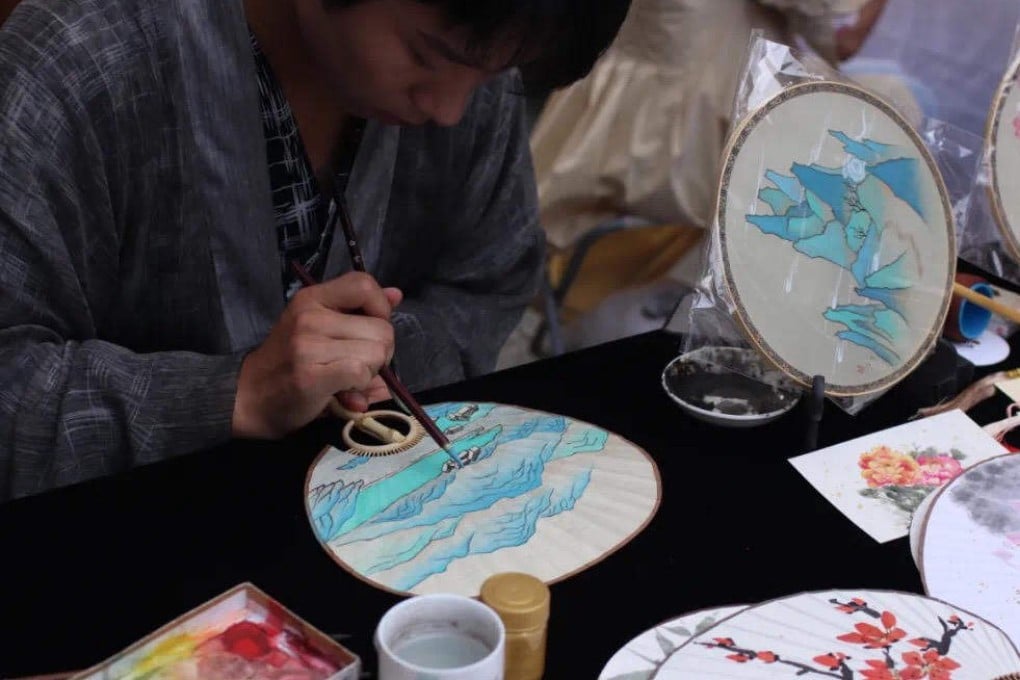From silk fan painter to hanfu clothes designer, artisan youth in China discover they can make a career promoting traditional culture
- A growing number of young people in China are making traditional Chinese artworks, handicrafts and fashion items for a living and posting about it online
- One makes hand-painted fans and hairpins, another uploaded a video of himself making a replica of a 3,000-year-old gold mask. It racked up over 11 million views

Li Jingyi never imagined, when he began selling hand-painted paper fans from a street stall two years ago, that they would be so popular – or that he would become a full-time handicrafts maker as a result.
“I painted the fans on the spot, attracting onlookers,” Li recalls of the stall in Dali, in China’s Yunnan province. Many visitors told him they “love traditional Chinese culture” and bought them as souvenirs.
Li is among a growing number of young people in China who make traditional artwork, handicrafts and fashion items for a living. They create videos of the process and post them on social media, earning tens of thousands of views for each upload.

Li, who lives in Dali, in southwest China, says he visits antique markets to buy raw materials such as jade and agate from the Ming (1368-1644) and Qing (1636-1912) dynasties in Chinese history.
“Having been passed down through many generations, they are usually damaged or fragmented,” he says. “But their look makes them ideal for making hairpins. I have also bought many books on the jewellery collections of imperial wives.
